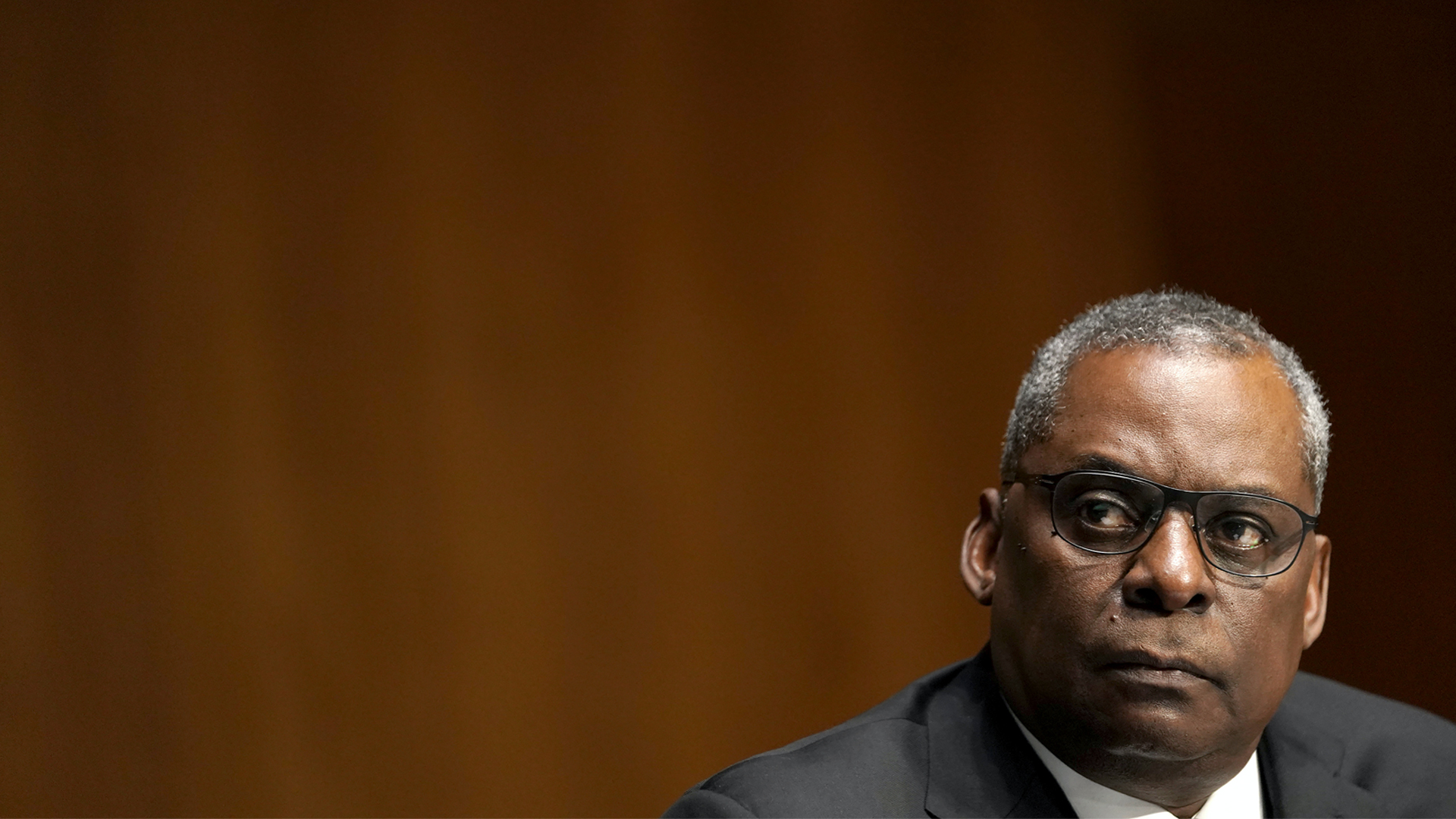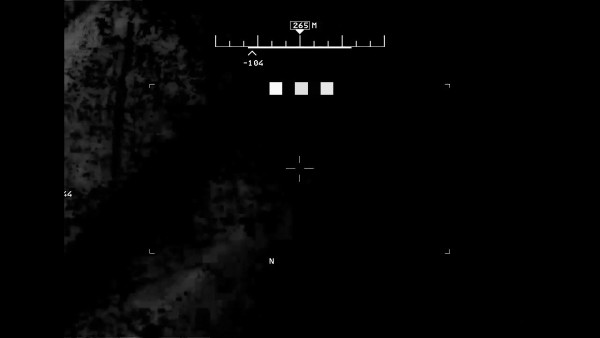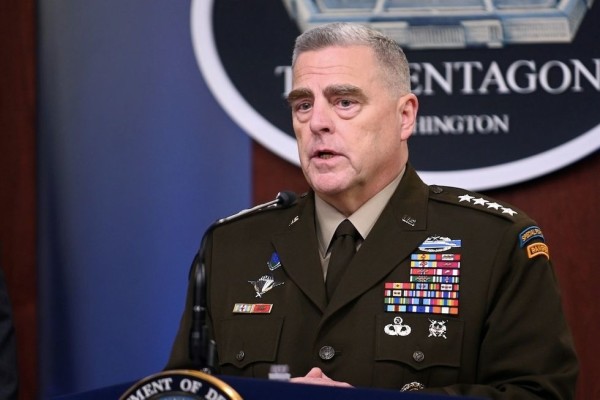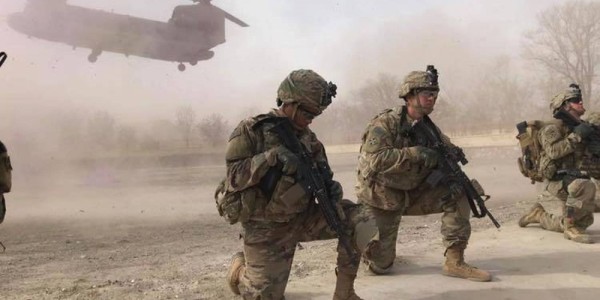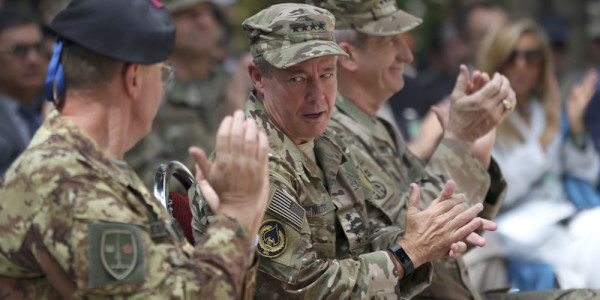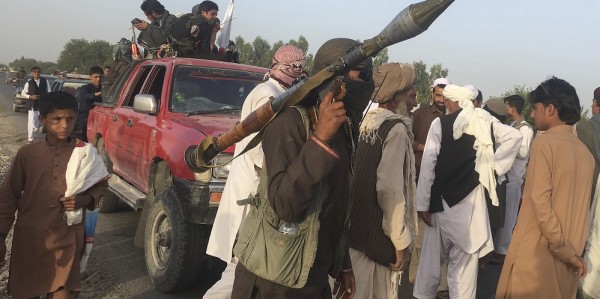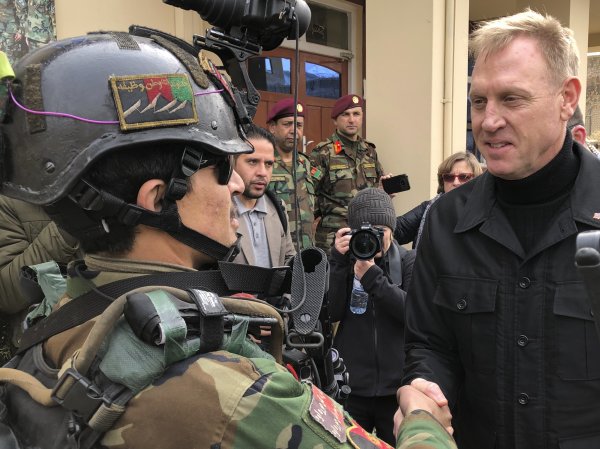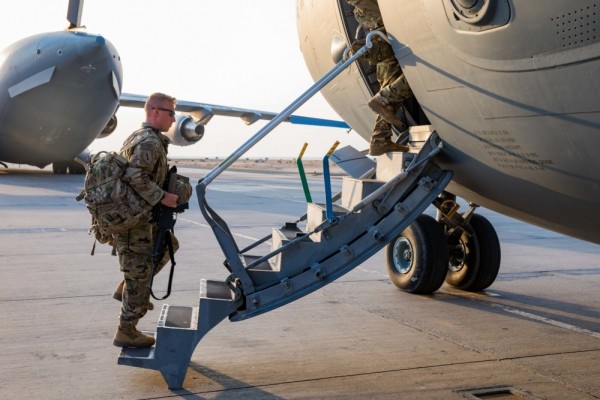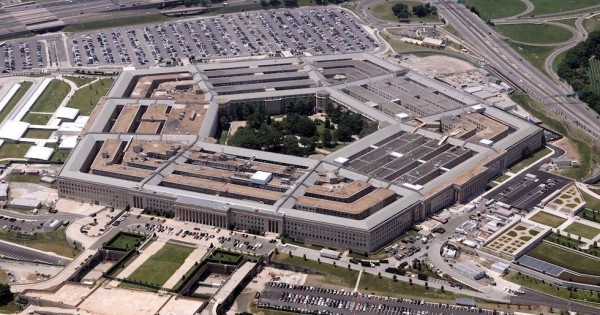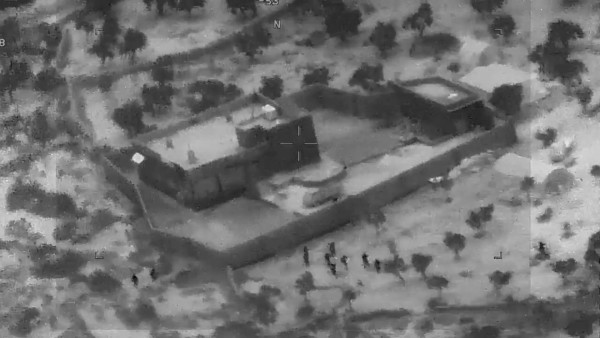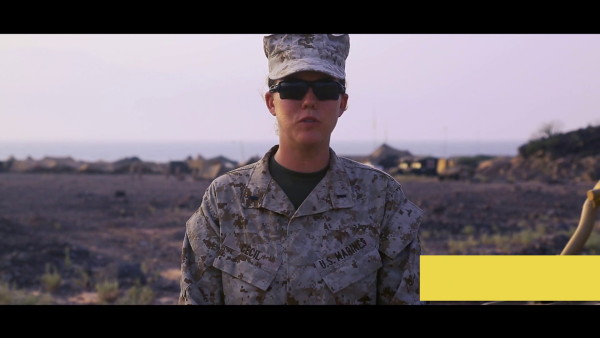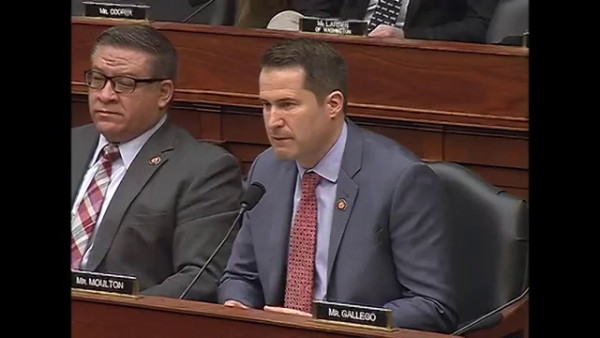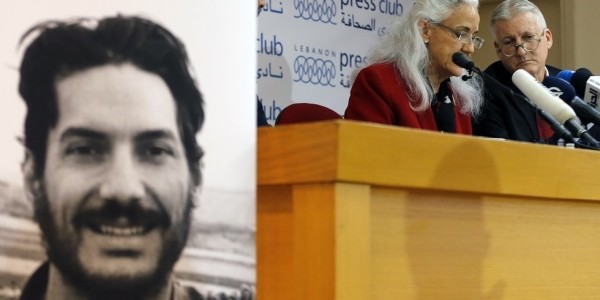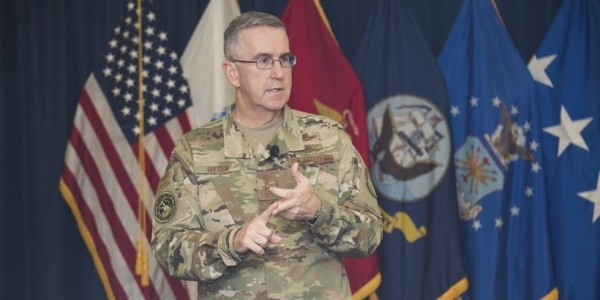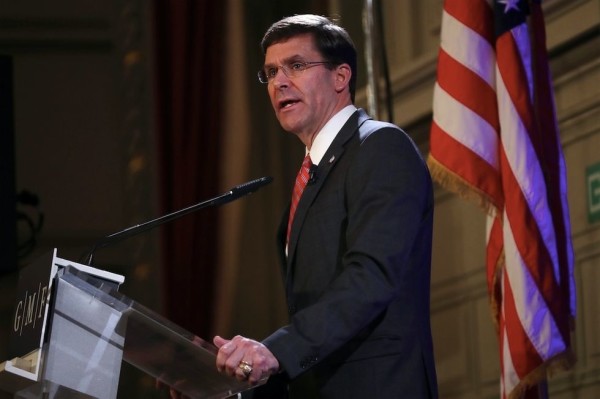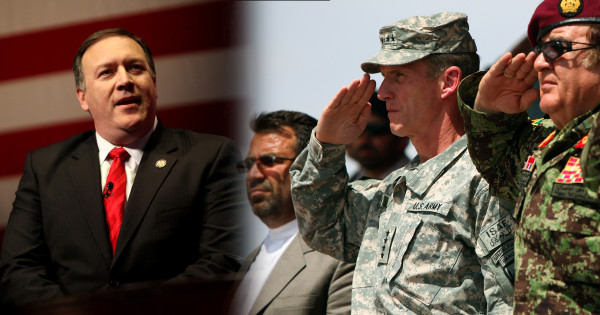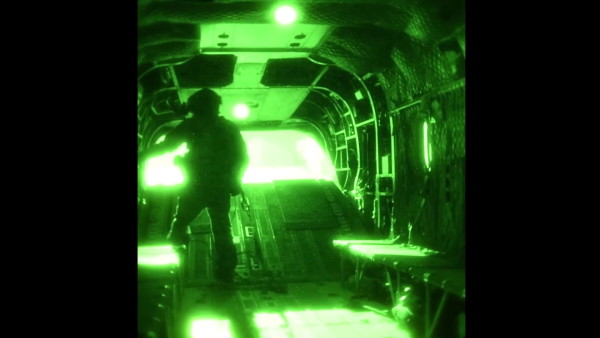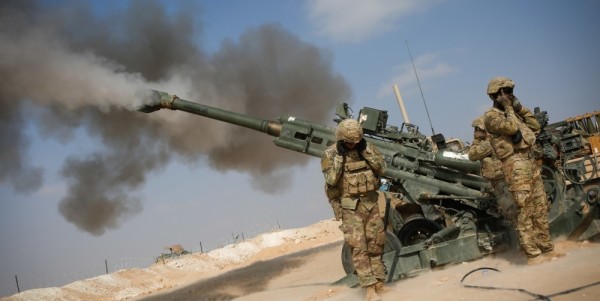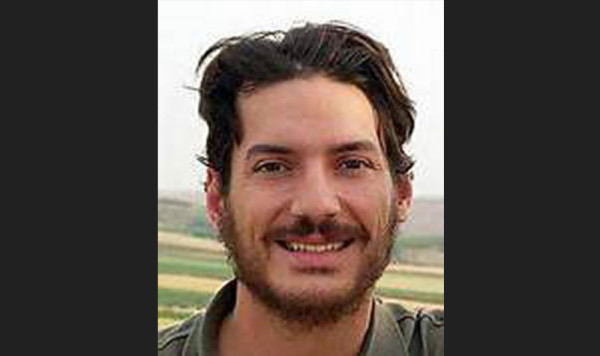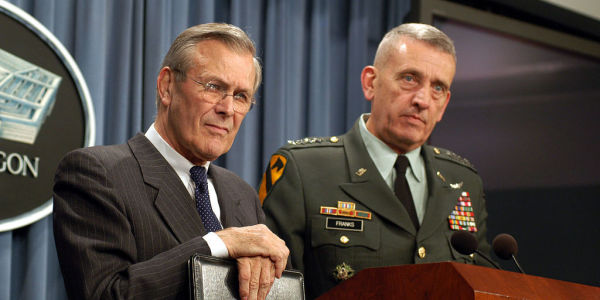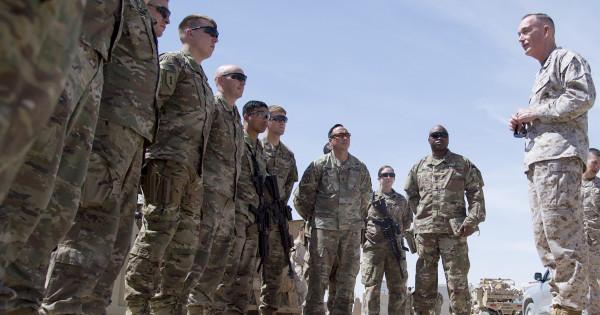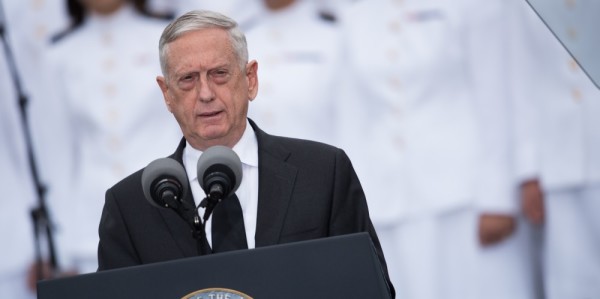When I was a junior Marine, an oft-repeated joke among my peers went like this: “What’s the difference between the Marine Corps and the Boy Scouts?” Answer: “The Boy Scouts have adult leadership.” It was funny at the time, in the half-bitter way that such jokes are funny as an outlet for resentment among young men frustrated at their perceived lack of agency. The joke would make an appearance after incidents seemed to reveal an institution that was capricious, even willfully negligent towards those at the bottom of the pyramid. Snafus we still called them back then: trucks that never showed up on time, formations that dragged on interminably, and the inevitable delays waiting to be allowed off base in the evening before sampling the dubious delights of a garrison town. When all was said and done, however, these jokes were no more than that. Because we were proud to wear the uniform, proud of the institution to which we belonged — and willing to put our lives on the line for what it stood for.
For many of us who shared that pride, it’s been a nightmare to watch the collapse of Afghanistan. After a series of blunders at every level, from short-sighted policy decisions to inept tactical actions on the ground, I find myself struggling to make sense of it all. And now, thinking back, those jokes don’t seem quite so funny.
Making sense of it all is exactly what I plan to do here. I will not go on about the chaotic scenes at the airport in Kabul that were redolent with fear and humiliation. Or about the loss of 13 U.S. service members who probably didn’t need to die, not to mention the hundreds of Afghans who died with them. Or about the incident that was the last offensive action taken by the United States in a 20-year conflict that turned out to be representative of so much in that war – a pointless blunder in the form of a drone strike that failed to hit its target but instead devastated an innocent Afghan family. It was not even a case of “collateral damage” — that anodyne euphemism for civilians caught in the crossfire — but a completely avoidable mistake.
‘I take full responsibility’

Instead, let’s discuss those responsible: Defense Secretary Lloyd Austin; Chairman of the Joint Chiefs Gen. Mark Milley; and Gen. Kenneth McKenzie, commander of U.S. Central Command. That term – “responsible” – will make a reappearance throughout this essay, because none of these three men appear to have a firm grasp of its meaning. At various stages of the catastrophic finale to U.S. involvement in Afghanistan, all three announced publicly that they accepted full responsibility for what has happened – yet they render that admission hollow by failing to take any action that might demonstrate its gravitas.
These are not the frustrated ramblings of an armchair warrior or political hack. As a former Marine special operations and infantry commander, I have planned and executed numerous combat operations — most recently, as commanding officer of the coalition special operations task force given the mission of defeating ISIS in Iraq. In planning for any of those operations, if I had simply waited to be asked for my advice, as recent testimony before the Senate Armed Service Committee would have us believe that these three did – I would have been rightly fired by any one of them.
To be clear, I consider all three to be honorable men whom I know to have sacrificed much for their country. But I cannot fathom how three prominent men could serve a profession for some 120 years between them, and yet so fundamentally misinterpret the moral and intellectual demands of that same profession.
One of these three, Secretary of Defense Lloyd Austin, is now a political appointee, and thus exempt from the same professional obligations as a military officer. But as someone who recently wore the uniform of a four-star general, which was an admission pass for his current role, he should at least understand the meaning of responsibility.
‘This is not a decision brief’

Austin’s appointment to the top of the Department of Defense stunned those of us who had personally observed his stumbling performance as commander of U.S. Central Command.
“This is not a decision brief,” a member of the Commander’s Action Group advised me in late 2015 as I waited to update Austin on preparations for a special operations task force to take on the Islamic State group in Iraq. “So don’t embarrass him by asking for one.”
This took me by surprise because the presentation was supposed to be exactly that: a thumbs up or down on whether to proceed with a particular course of action. Instead, my carefully delivered presentation concluded in awkward silence during which Gen. Austin nodded his thanks, then sniffed and tugged at his collar but offered no guidance. Eventually one of his long-suffering staff showed me the way to the door.
“I’m sorry, Andy, but it is what it is,” he said with genuine remorse, before adding: “Hey bro, make sure you kick ass out there.” That quietly delivered exhortation was more inspiring than anything I heard from Gen. Austin during his two years in command.
‘Around four or five’ for $100 million apiece
That briefing six years ago was only one of a number of incidents that earned Gen. Austin a reputation at CENTCOM for chronic decision-phobia.
As so often happens in any bureaucracy, facts that are clearly evident to subordinates never make it upward past the incumbent in the chain of command to those who make decisions about their suitability for higher office. What happens at CENTCOM stays at CENTCOM. Or so we thought — until an incident occurred that was so excruciatingly embarrassing that we were convinced it would rocket Austin into infamy before releasing him from further service with a velvet glove. This was his 2015 appearance before the Senate Armed Services Committee to discuss CENTCOM’s efforts to train a credible force of Syrian fighters.
“Well, the number is quite low,” Austin mumbled after being asked how many fighters had been trained at a cost of some $500 million, “I believe around four or five.”

You could see members of the committee silently urging him to add a qualifier: “Is that around four or five thousand, or four or five hundred, General?”
Nope. It was four or five total, a faltering admission. Incidentally, I couldn’t help wondering at the time why the number was four or five. With barely a fire team at hand, Austin might have tried to be more precise.
Reputation vs. Current performance
We have a saying in the military that is immeasurably more mature than my earlier comparison between the Marine Corps and the Boy Scouts: “The most important thing you have is your reputation.” It may not be the most important thing, but a person’s reputation among peers and subordinates does provide a consistently accurate measure of credibility. This is why we consider it perfectly legitimate, even obligatory, outside the walls of a promotion board, to find out what peers and subordinates say about someone, before assigning him or her to an important position. Reputation, couched in these terms, will remain a credible and fair method of assessment until military performance evaluation reports formalize this function by including a 360-degree perspective.
Obviously, Secretary Austin’s performance before the SASC did not sully his reputation enough to prevent him from proceeding to the highest position in the Department of Defense, and if he was performing credibly in his current position, it would be churlish to mention his past lackluster performance at CENTCOM. But the trends that were apparent then continue today, this time with a much wider casualty radius.
Indeed all three men’s performance should be assessed in the context of their actions during the recent crisis — and it is here that I intend to focus. It’s a period of fewer than three months, but one, I imagine, that tested their mettle more than any other episode in their respective careers. As such, their words and actions during this period are supremely important.
The 90-Day Crucible

The period under scrutiny begins with a press conference given by Austin and Milley in late July as the Kabul debacle gathered steam and culminates in last week’s appearance by all three in front of the Senate Armed Service Committee.
July 21: The Pentagon press conference
As the situation at the Kabul airport unraveled amidst heart-breaking scenes of desperation, Secretary Austin began by talking about his trip to the Pacific Theater, perhaps failing to understand that what was happening in Afghanistan was by far more important. The scenes at the Kabul airport were sending a message to the world about America’s reliability as a partner and demonstrating a consequent loss of influence — the coin of the realm in this era of so-called great power competition.
Finally, Austin got to the point foremost on everyone’s minds: “Now, let me briefly talk about where we are on Afghanistan … our drawdown continues in a safe and orderly manner.”
Gen. Milley reiterating his boss’s unfortunate statement: “CENTCOM and many others in the joint force, have paved the path for a safe, orderly and responsible transition.” I remember gaping in astonishment at this brazen claim.
Milley carefully avoided any phrase that might indicate meaningful insight or original thought and instead returned again and again to the kind of mindless “thank you for your service” slogans intended to pander to America’s superficial deference towards those in uniform: “We will always protect our nation,” “Our Joint Force is incredible because of the skill, determination of our men and women and their leaders, and there’s no task that they cannot accomplish.” And – said in various ways no less than five times: “We take an oath to the Constitution.”
Secretary Austin returned to the podium with panache, to explain why the United States will no longer have to worry about terrorism. “We’ve talked about, you know, setting up a err, um, a node to be able to conduct over-the-horizon strikes. That node is in place.” I hoped at the time that this “node” was worthy of more confidence than he expressed.

Then came the coup-de-grace for any hope that these two men could be agents of national redemption. Milley again: “We will monitor the situation closely and make adjustments as needed.” How were we going to make such adjustments? Just two weeks earlier, with Bagram still in U.S. hands and with troops on the ground, the Pentagon had such options. But by executing the president’s ill-conceived order to withdraw this residual force, Austin, Milley, and the operational commander, McKenzie had withdrawn all options with it. Now there could be no more “making adjustments.” Milley’s statement was akin to a ship’s captain discussing engine room oil levels as the ship foundered beneath him.
It should also have been obvious to these three men with their vast amount of experience that any force introduced in extremis to the chaotic situation at the airport was at an inherent and pronounced disadvantage. And this isn’t hindsight speaking. It is something that any second lieutenant could have explained at that same press conference.
Despite all the false bonhomie, this was not a good showing for Austin and Milley. They failed to take the situation or their audience seriously, and thus forfeited the right to be taken seriously themselves. Two “bluff soldiers” giving sound-bites heavy with cliché and devoid of meaning, trying to distract a press pool sharper than themselves. They reminded me of two actors in a TV show, joking weakly as the water rose around their waists. But unlike the protagonists of such a show, these two men lacked the wherewithal to find a solution. And the water would soon be over their heads.
August 29: Circumstances of the drone strike in Kabul

The tough-guy image requires senior officers such as Milley and McKenzie to treat the media with a curious mix of condescension and barely concealed hostility. Mature leaders try instead to find common ground. A desire to discover the truth should be central to that common ground.
Initially, neither Milley nor McKenzie appeared to take seriously reports by The New York Times that the drone strike on August 29 had gone badly wrong. It was a “righteous strike,” crowed Milley with all the fervor of someone who has never experienced the results of such a strike first hand. Instead, he should probably have felt the first twinges of unease, as media reporting indicated that the strike had been anything but righteous.
The Chairman likely knew that the strike was based on information from a single source – the camera feed from an MQ-9 Reaper. This is a notoriously unreliable method of targeting and is a leading cause of drones being 30 times more likely than manned aircraft to cause civilian casualties. All three men surely were aware of these facts, given their past operational commands and extensive experience of such matters.
But as the news broke around them, the Pentagon’s reaction revealed much about the shortfalls in DoD leadership.
Instead of admitting that the media might have uncovered something, the Pentagon reacted to emerging evidence with a stumbling response that suggested a lack of transparency — or supreme incompetence. Gen. McKenzie said the decision to strike a white Toyota Corolla sedan, after having tracked it for about eight hours, was based on a standard of “reasonable certainty” that it posed an imminent threat to American forces at Kabul airport. Having been involved in similar situations, I know that these are tough calls to make. But anyone who has spent time in Afghanistan, indeed the Middle East, must be driven to question how “reasonable certainty” could be based on a description that matches one in five vehicles on Afghan roads. McKenzie’s statement illustrates how high pressure can lead commanders to confirmation bias, which has a pernicious effect on the clear-headed judgment that is most needed in these situations.
Confirmation bias is compounded by the type of leadership that doesn’t solicit advice. In this case, the pressure was not caused by time. An 8-hour surveillance usually offers plenty of time to validate the target by corroborating the initial source with other information. Maybe there was a good reason in this case not to do so, but it’s a question that McKenzie should have addressed instead of pretending that he didn’t need to. Given that much time, no experienced commander conducts a strike based on such a thin veneer of intelligence without pursuing another source.
I can only imagine that there was intense pressure up and down the chain of command to make this strike happen. At the policy level, to make good on the president’s steely-eyed vow to hunt down the killers of 13 U.S. service members and to show resolve and competence as a counterweight to the shambolic scenes at Kabul airport which showed the exact opposite. And for those lower down the chain, there was likely a more visceral motive – the desire for vengeance, a need to dispel for a moment the pall of humiliation that weighed heavily on all of us who had served in that war. These are all understandable emotions, but emotion is corrosive and has no place in the targeting process. Instead of feeding this emotion, and ratcheting up the pressure, it is the role of senior officers to take a step back and be the voice of reason.
“As the combatant commander, I am fully responsible for the strike and this tragic outcome,” McKenzie announced afterward. Noble words but ultimately hollow. No four-star general in the last two decades has resigned on a point of principle.
Sept. 28: Testimony before the Senate Armed Services Committee

The main theme of questions during the testimony focused on what advice the Trio had given the president about the plan to withdraw from Afghanistan, and whether they had foreseen this precipitous collapse. Their answers reveal a startling misconception about the nature of their responsibilities.
To understand the context of their testimony, it is necessary to go back to January 2021 and a comment made by Gen. Scott Miller, the commander of U.S. forces in Afghanistan at the time, about the remnant of his command still in the country.
“This [reduced] force has the appropriate lethality and the U.S. government retains its counterterrorism capacity in Afghanistan,” Miller told Stars and Stripes in January.
This is no exaggeration. Those familiar with troop level calculus in support of partner nation operations know that much can be achieved by employing a relatively small number of personnel with the right qualifications, such as special operators, combat air controllers, signals intelligence collectors, drone operators, logistics personnel and information and electronic warfare specialists. Plus an element to provide force protection in the form of a company or two of infantry.
Furthermore, by leaving this force in place, the U.S. guaranteed the security of some 8,500 NATO troops involved in training the Afghan Army. Simply put, a small U.S. force could have remained in-country to provide support for the Afghan military, while retaining leverage for U.S. foreign policy in the region, at little cost in terms of risk or financial expenditure. Withdrawing them made no sense except as a piece of political theater for a misinformed domestic audience. The argument that the president was bound by his predecessors’ agreement with the Taliban is ultimately weak. Afghans understand better than most that negotiation is often an iterative process, and the Taliban proved that they are no exception by negotiating their way to victory in the closing weeks of the war. Indeed, the Taliban had arguably already broken the terms of the agreement they signed with the Trump administration by bypassing a negotiated settlement and by failing to eject al Qaeda from their midst — so the claim that President Biden was still bound by it is somewhat disingenuous. In any case, the new administration made no attempt to even try to renegotiate terms with the Taliban.

As for the subsequent collapse of Afghan forces, it’s hard to credit claims by the Trio that no one could have predicted such an event if that gesture of U.S. resolve was removed. How could strategic leaders not understand the heavy moral weight that even a small U.S. presence confers on any coalition effort? Even at the tactical level, anyone who has worked with the Afghan National Army could guess that this would happen.
The president’s decision not to take the advice of these three men had disastrous consequences that should clearly have been apparent to them at the time. Resigning would have at least drawn attention to their concerns; it would have highlighted the fact that they cared so much about what was to follow, that they were prepared to sacrifice their careers to avoid it happening. And – who knows – the threat of resignation by three of Biden’s most important military advisors might even have pushed the president to reconsider his decision. All of this remains counter-factual since none of these leaders decided that it was worth making a determined stand. And if none of what has happened in August — from the needless loss of 13 U.S. troops to the devastating effect that the episode has had upon America’s standing in the world – was considered by them worth falling on their swords, then what is?
As I watched Austin’s testimony, it brought to mind an exchange he had with the late Sen. John McCain (R-Ariz.) when he appeared before that panel several years earlier.
Although clearly aghast at Austin’s revelations about the pitiful outcome of CENTCOM’s Syrian Train and Equip Program, McCain showed none of the hollow theatrics recently displayed in that same forum by a succession of lawmakers, but instead commented simply that he hadn’t “seen anything like this testimony in over two decades on this committee.” This understated expression of incredulity was not intended to be a resume builder. I imagined McCain’s ghost sitting now behind the front row of senators, shaking his head at Austin’s subsequent progression to a position that allowed him to let the nation down yet again.

During testimony that was at times almost as comic as it was painful, Milley took center stage, while the other two played supporting roles – a decision that they may now regret. Allowed unfettered access to the microphone, Milley kept digging a hole for himself by following the ludicrous with the absurd in a rambling monologue that said more about his unfitness for the job than any previous display. The theme of his comments amounted to, “Hey fellas, The President chose not to take my advice – so what do you expect me to do?” In so doing, he couldn’t resist making yet another statement of the obvious – a trend that appears to be a mainstay of his career: “Decision-makers are not required, in any manner, shape or form, to follow (military) advice,” Milley said.
It is here that Milley appears either disingenuous or just incredibly naïve. Wearing a uniform should not relegate anyone to being a mere cipher. From four-star generals who should – where appropriate – challenge policymakers on their assumptions, to junior drone operators and intelligence analysts endowed with intuition borne from repetitive experience, a culture dominated by those who don’t understand this imperative is one that is in trouble.
Despite my misgivings about their suitability for current office, the three men in the dock towered over their accusers in terms of human qualities such as honesty, character, and self-sacrifice. I took no pleasure in watching the snide needling by Sen. Josh Hawley – the character-challenged Trumpian sycophant who saluted rioters a day after their deadly attack on the Capitol in January. But Hawley is what he is: a political animal through and through, simply performing as his constituents demand. And, in discussing what else they might demand, Milley dragged himself further onto thin ice using a pick made fragile by faulty logic.
“This country doesn’t want generals figuring out what orders we’re going to accept and do or not. That’s not our job,” Milley replied to the question of why he had not resigned. He later added, “My dad didn’t get a choice to resign at Iwo Jima and those kids there at Abbey Gate, they don’t get a choice to resign,” the latter being a reference to the American troops who were killed by a suicide bomb at the Kabul airport in August.
Let’s unpack that authoritative-sounding statement. Gen. Milley was right to say that the enlisted service members who died didn’t have a choice when given that order. But Milley did. And by making the right choice, the Chairman of the Joint Chiefs might have prevented their deaths. Those troops were implicitly relying on men like Milley and McKenzie — with all their homespun bluster — to make a stand in preventing the strategic and operational failures that placed them in that position. And in the final analysis, this might have prevented the tactically inept direction to man a security perimeter that allowed these young men and women no stand-off from approaching attackers.

That’s the distinction between the role of the three men at the top of the pyramid and the position of junior enlisted personnel at its bottom. It’s a distinction clearly implied by the wording of the oath that all three took as officers, an oath which they continuously invoke in their own defense.
As for what the country wants, it must surely include general officers who haven’t surrendered their moral autonomy to the political administration of the day: Generals who understand that it is their responsibility to set the right balance between the mission and the men because they also have an obligation to subordinates – the sons and daughters of the American public that General Milley so readily brings to his defense. Generals that have thought deeply about what their obligation to the nation really entails.
This is an obligation that defies neat categorization. It can’t be captured on a PowerPoint slide or be easily explained in a chummy press conference. Understanding it demands intellectual and moral rigor. I would guess that these are the qualities that America expects of its generals.
Resignation won’t atone for lives lost, or the debacle that American involvement in Afghanistan became, but it would at least demonstrate that these men understand the ethics of their profession. It would help calibrate the moral compass of thousands of officers beneath them. It might even help all three find absolution if such a thing still matters to them.
Sadly, the men and women at the pinnacle of our institution are a product of a culture that doesn’t nurture initiative, disciplined disobedience, or a profound understanding of our professional ethics. “I’ve taken an oath to the Constitution” is only the beginning of that intellectual and ethical journey, not the destination.
The hearings were a blow to those of us searching for redemption among our senior uniformed leaders. Instead, they illustrate the pernicious effect that having men such as these in positions of the highest responsibility can have upon America’s standing in the world.
Resignation may solve little, but is simply the right thing to do. And, at the very least, it will clear the way for those better qualified to begin the task of restoring this nation’s credibility on the global stage.
+++
Andrew Milburn retired from the Marine Corps as a colonel in 2019 after a 31-year career as an infantry and special operations officer. His last position in uniform was Deputy Commander of Special Operations Central (SOCCENT), and prior to that commanding officer of the Marine Raider Regiment and Combined Special Operations Task Force – Iraq. Since retiring, he has written a critically acclaimed memoir, When the Tempest Gathers, and has had articles published in a number of national publications.
More great stories on Task & Purpose
- Army paratroopers traded dip for a Toyota gun truck used to secure the Kabul airport
- Inside the office of a one-star Army general that 100% of soldiers rated ‘hostile’
- Leaked documents reveal just how concerned the Marine Corps was about Lt. Col. Stuart Scheller’s call for ‘revolution’
- The Tomb of the Unknown Soldier was guarded by an all-woman team for the first time ever
- It’s time to stop awarding the Global War on Terrorism Service Medal
- Meet the deadliest Air Force commando ever to set foot on the battlefield
Want to write for Task & Purpose? Learn more here and be sure to check out more great stories on our homepage.
Task & Purpose is committed to publishing an array of reasonable, informed, evidence-based opinion pieces from across the military and veteran community. If you’re interested in contributing, email us here.
